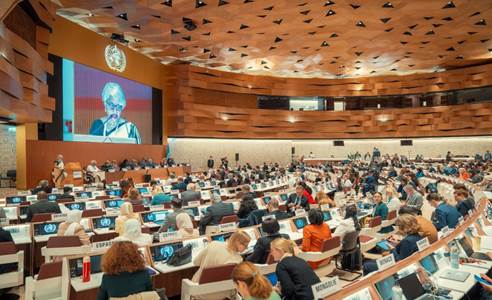The World Health Assembly saw agreement on several amendments moved by member states based on their COVID19 experience
A pandemic emergency definition, a national authorities for the implementation of the International Health Regulations and a commitment to solidariry and enquiry were among amendments to the International Health Regulations that the member states agreed on at the World Health Assembly in Geneva.
These decisions represent two important steps by countries, taken in tandem with one another on the final day of the Seventy-seventh World Health Assembly, to build on lessons learned from several global health emergencies, including the COVID-19 pandemic. The package of amendments to the Regulations will strengthen global preparedness, surveillance and responses to public health emergencies, including pandemics.
It was widely regarded as a momentous achievement. Apurva Chandra, Secretary, Ministry of Health and Family Welfare, government of India, expressed his excitement by stating that “with the revision of the International Health Regulations, an incredible milestone has been reached.” He also said that “this is a further step towards equity and the creation of an umbrella of solidarity that will help protect the world from future pandemic threats. This is a gift to our children and grandchildren.”
The pandemic emergency definition is crucial as one of the triggers for a more effective international collaboration in response to events that are at risk of becoming, or have become, a pandemic. The pandemic emergency definition represents a higher level of alarm that builds on the existing mechanisms of the IHR, including the determination of public health emergency of international concern.
Dr Tedros Adhanom Ghebreyesus, WHO Director-General said: “The amendments to the International Health Regulations will bolster countries’ ability to detect and respond to future outbreaks and pandemics by strengthening their own national capacities, and coordination between fellow States, on disease surveillance, information sharing and response. This is built on commitment to equity, an understanding that health threats do not recognize national borders, and that preparedness is a collective endeavor.”


